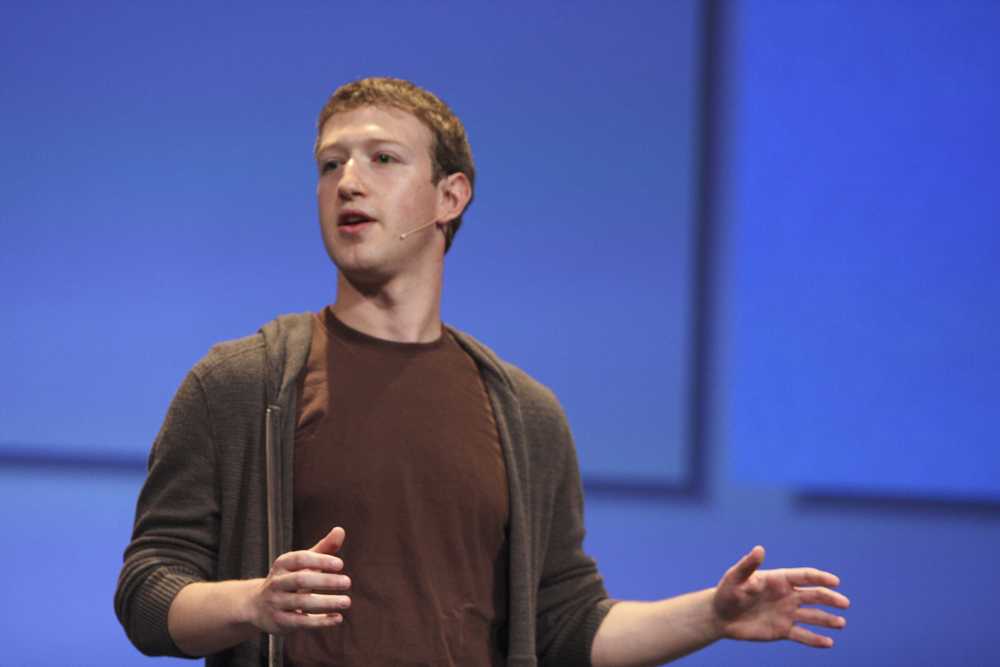In an age where social media’s presence in our lives is unavoidable and the desire to stay connected at all times grows each day, it’s hard to remain skeptical of something that is so addicting. Every once in a while though, situations arise that make us doubt our privacy on the internet.
Cambridge Analytica, a London-based data-mining company and partner for the Trump campaign, was recently accused of violating users’ privacy. Because thousands of Facebook users took a personality quiz developed by the firm’s research, the firm was given access to their profiles along with those of their Facebook friends. The data they gathered was used for targeting purposes to influence the 2016 presidential election.
After this came out, CEO Mark Zuckerberg apologized for allowing such a breach of privacy to happen. In a Facebook post Wednesday, Zuckerberg wrote on behalf of his team: “We have a basic responsibility to protect people’s data, and if we can’t do that, then we don’t deserve to have the opportunity to serve people.”
In addition, the former Harvard University student promised to fix the situation by mandating that any app that wishes to partner with Facebook must go through an extensive auditing process. He also plans on restricting what sort of data can be gathered from users.
This incident clearly raises many concerns with internet privacy. Time and time again, we revisit the topic of privacy in this digital day and age. Even if we’re more frequent users of the internet, we’re still not totally tech literate. “Algorithms” seem to be the blanket response for anything construed as manipulative on social media, though the average person is unaware of what’s being monitored while they’re scrolling through their Instagram or Twitter feed.
We are told to be mindful of our “digital footprint” and to be wary of entering or submitting personal information online. No one really thinks twice about authorizing data, especially when it’s for something on a BuzzFeed style survey, full of GIFs and other interactive features. But should we be more skeptical of taking such seemingly harmless surveys online when we’re seeking relief and humor from our everyday lives?
It would be easy to place blame Zuckerberg and the inadequate Facebook policies that allowed for this to happen, but the company has been trying to fix this issue for a while now. Company policies that were passed in 2014 made it harder for external apps to use people’s profiles and information. In fact, it was only in the short interval of time between these measures being passed and them being enforced that allowed Analytica to gain this information.
We also have to acknowledge that none of this would have come out in the first place had Cambridge Analytica not been seeking personal information for political purposes. Therefore, senators’ demands for him to testify in front of Congress does not seem productive at this point in time. We need to institute real change to prevent things like this from happening again.
The company’s involvement in the Trump campaign sounds similar to Russia’s meddling in swaying U.S. elections results, which is currently undergoing investigation. We now know that Russian trolls used social media to have the voting polls look favorably for Trump. For so long, we only thought that a communist superpower and an extremely foreign threat like Russia could be capable of threatening our democracy. But this time, it looks as though our Western allies also want to be involved with American elections. Our social media accounts could be deeply infiltrated by foreign organizations all the time, and we just don’t know it.
We also can’t forget that we too easily play into the games these institutions are placing before us and helping them with their suspicious, albeit strategic intents. Maybe it’s time for us to rethink the ways we consume and interact with the internet. Things like BuzzFeed quizzes have evolved as the internet has grown to be a place largely about entertainment, to the point where it no longer feels harmless to authorize our personal information.
Internet culture demands change, and with the current generation of internet users growing up on social media feeds and timelines, the consequences could be even greater. They’ve allowed more of themselves and their lives to be broadcasted on the internet and to their social media followers. Generation Z has become so entrenched on the internet to the point where they can easily be manipulated, which could ultimately be even more dangerous for democracy and presidential elections in the future.



















































































































